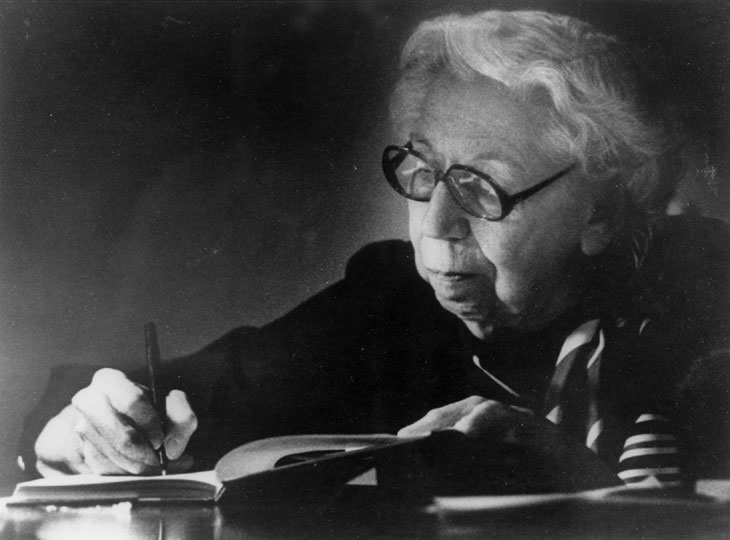
An excellent book for authors is One Writer’s Beginnings by famed Mississippi author Eudora Welty. The book was originally published in 1984. It’s a collection of her autobiographical essays, which were based on a series of lectures that she gave at Harvard University in 1983.
Much of the book details Welty’s formative experiences as she grew up in Jackson, Mississippi. She was born in 1909, old enough to be my mother’s mother, and born over 60 years before me. Those intervening six decades were a time of tremendous social and technological change, and yet I still felt echoes of my own childhood experiences in her narrative. I was left wondering if I might not have shared more experiences with Welty than future writers who are being born today will feel they shared with me, assuming any of them will care to compare their lives to mine in another 30 years.
My father, like Welty’s father, was a tinkerer and fond of gadgets and telescopes. Like Welty with her father, I remember mine showing me constellations and eclipses in the back yard. And I also remember playing with Tinker Toys and Erector sets and building kites, just as Welty did. And in both our cases, those were atypical experiences for girls where we grew up. I remember telling other kids at my Texas elementary school about looking at a lunar eclipse through our backyard telescope. I got blank looks from the girls but some replies of “Oh, what kind of telescope does your dad have?” from a few of the nerdier boys.
For me, the evenings spent at our backyard telescope in fostered a sense of wonder at the world, a sense of its vastness and complexity; Welty remarks that for her, she developed a strong “meteorological sensibility” that carried into her fiction. And construction toys and puzzles are known to build the parts of the brain involved in creativity and problem solving, both of which I think are important attributes for fiction writers.
And in both my and Welty’s homes, books were treated as prized objects. Welty grew up with rather different books in her household, but that matters less than the value our parents placed upon them, both as objects and as repositories of art and knowledge. Years before I learned how to read, I knew books were special because my parents treated them as special. They surely contained the secrets of the universe! And so I was eager to learn how to read, and frustrated when I wasn’t the first student in my class to get the hang of it.
Both Welty and I grew up reading most everything we could lay our hands on once we were able to read. And that is one of the points where I feel that newer writers and I are likely part ways in our experiences. I grew up in the age of television, but we had only two staticky air channels, no cable. I didn’t get video games or a computer until I was well into my teens, and we didn’t have the Internet back then. I enjoyed reading, no doubt, but I read so much when I was a child because frankly there wasn’t much of anything else to do! I seriously doubt that writers who are growing up with so many more forms of media competing for their attentions will read as many books by the time they’re 18 as Welty and I did (and I’ll assume that Welty read even more than I.)
I also felt a bit of envy reading Welty’s stories. Her parents were educated, and valued an education for their children, as did mine. My mother was an intelligent woman who never got a college education despite wanting one very badly, and so she encouraged me and lived vicariously through me in that regard. Her father died before she was born, and his sisters and mother raised her in rural South Carolina after her teenaged mother gave her up. They treated her as an afterthought, a disappointing exchange for the promising young man they’d lost. They had money enough to send a child to college by the time my mother was a teenager, but they discouraged her educational aspirations so thoroughly that she ultimately didn’t go back to college even when she was in a position to do so.
The narrative that I grew up with was that women born in the Deep South in 1929 just didn’t get college educations. And yet Welty, born 20 years earlier in an even deeper part of the south than my mother, did. I’m told Welty’s era was less conservative and reactionary than my mother’s; either way, I’m certainly glad that I grew up in a country and an era when a college education for girls was not just accepted but expected.
Leave a Reply
You must be logged in to post a comment.